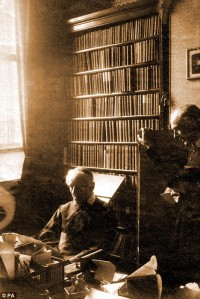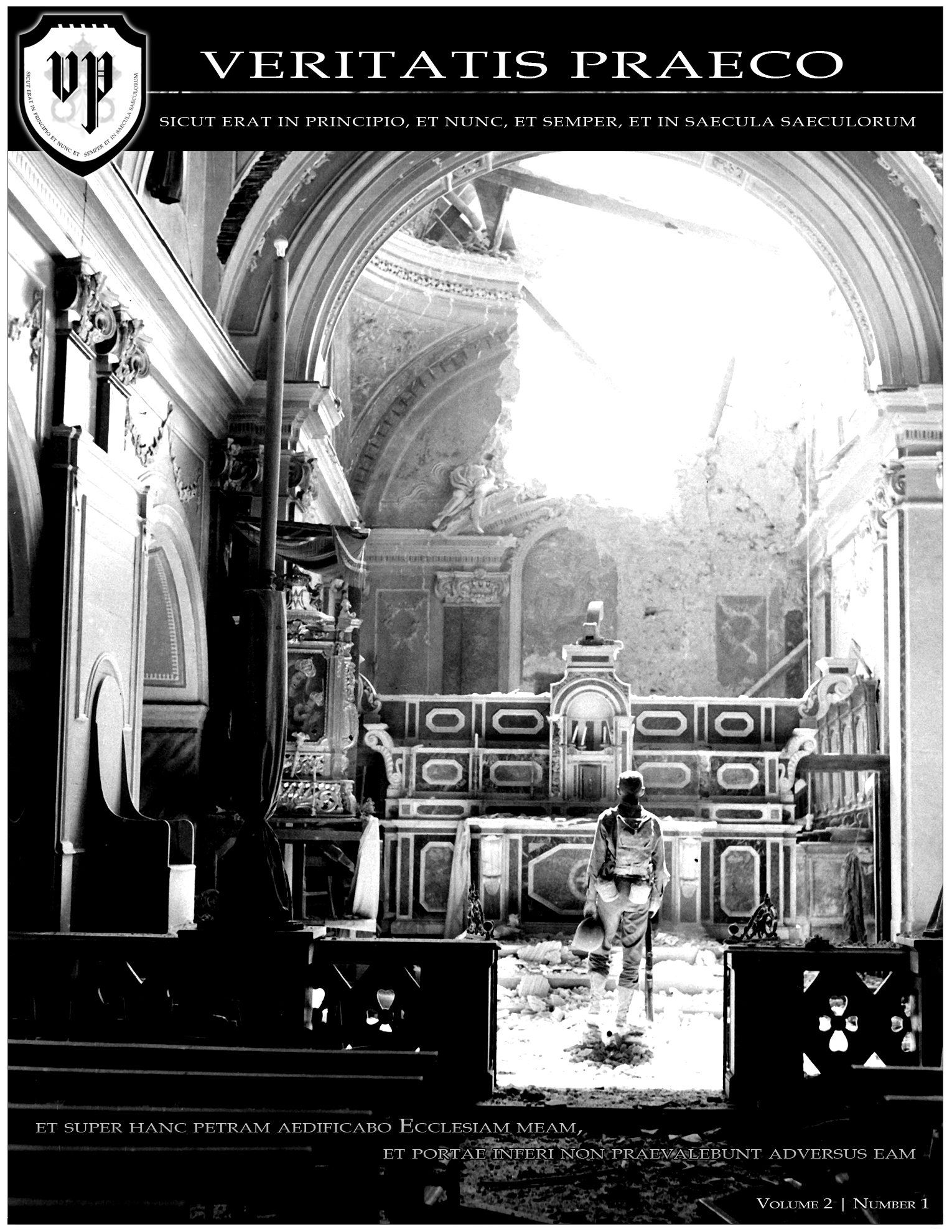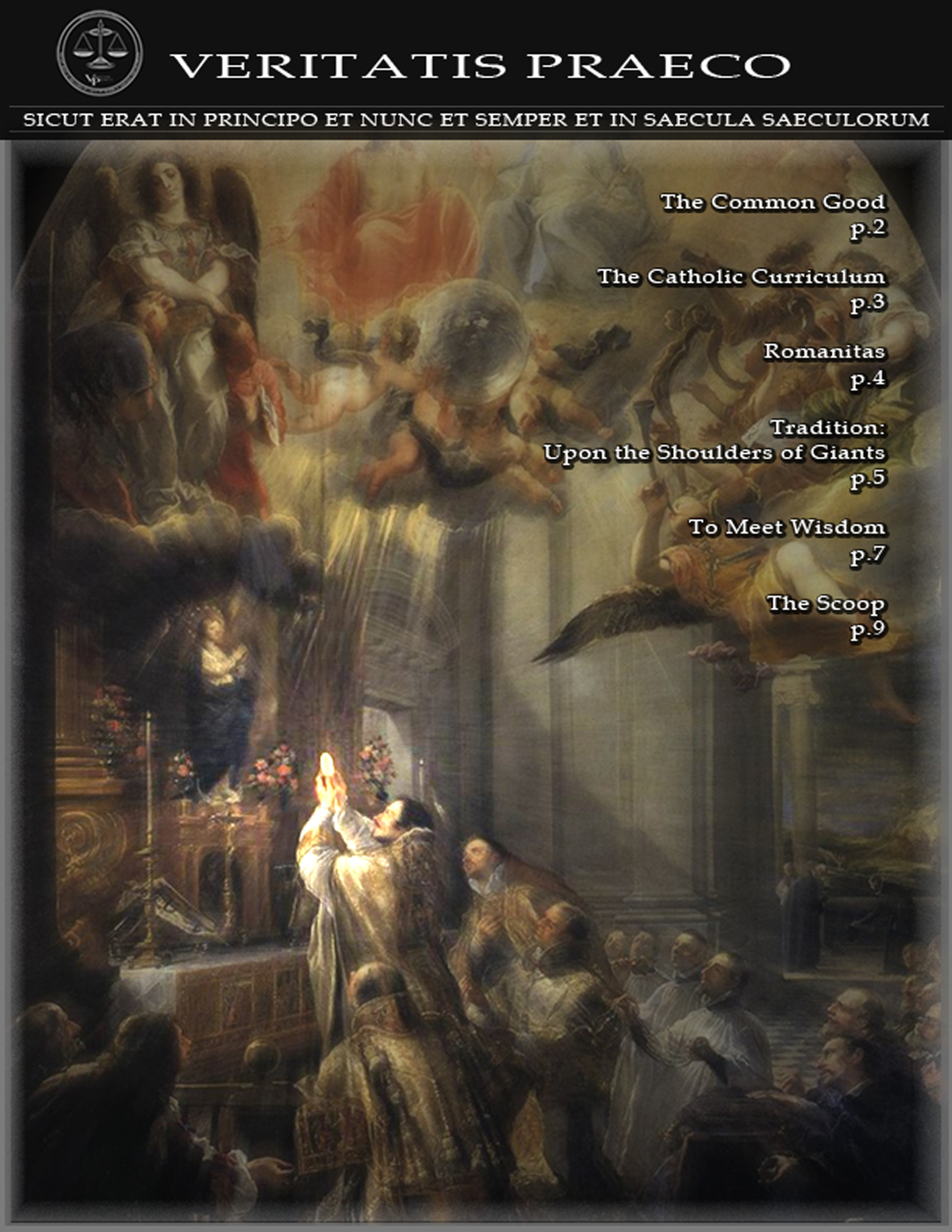Archive
Cause, but Little Effect
What does the date 1492 have to do with Fyodor Dostoyevsky’s Brothers Karamazov? It is not a question of tremendous historical importance, yet it is nonetheless linked to a great historical significance, i.e., the meaning, more or less, which should be derived from the interconnected events. Sadly, however, few students of history or literature, or both, could show the link between the year 1492 and Dostoyevsky’s best novel: for the year 1492 was not just when Christopher Columbus stumbled upon America, but also the year in which, fourteen years after the start of the Spanish Inquisition, King Ferdinand II decreed that all Jews were to be expelled from Spain. This promulgation of expulsion did little to solve the conflicts between Catholics and Jews in the greater part of the country, as at least half of the Jews did not leave and were not forced to do so, and many others converted externally but continued to practice Judaism in secret (commonly called a crypto-Jew). Since the Jews were no longer supposed to be in Spain by decree of official authority, their continued residence and frequent false conversions complicated the situation and tensions tightened. As such, combined with international tensions between Spain and almost every other major power of Europe in the middle of the previous millennium, the Spanish Inquisition, particularly the Inquisitors, gained a powerfully negative and ludicrously exaggerated reputation for malevolence. This reputation had a not-insignificant effect on the historians of Europe and America, including W.H. Prescott, who rhetorically dressed the Inquisitor General Valdes in the robes of Satan in his unfinished history: a history read by Fyodor Dostoyevsky and likely, but not definitively, influential upon the story of Ivan Karamazov within The Brothers Karamazov, entitled “The Grand Inquisitor.”
Clearly, the two things are not definitively, certainly, or inarguably linked. That is not the point behind this little demonstration of seemingly irrelevant knowledge. The point is that most people in America, hearing the date 1492, think, “The year Columbus discovered America!” It is a fact drilled into every student from the time he is 5 until he is 18 – and oftentimes even after that. Sadly, this is considered studying history. Oftentimes, students of the rigorous discipline of brute memorization mistakenly called history can spout out the entire Declaration of Independence, the date of the Battle of Hastings, the ruler of the Ottoman Empire during the last four years of the First Constitutional Era, the second Caliph of Islam (depending upon which Caliphates he chooses to accept as valid, of course), and the birth date of every member of the Hapsburgs; and yet, he will know less of history than the man who call explain what the year 1492 might have had to do with Dostoyevsky’s Brothers Karamazov. History, as an academic discipline, is not the study of what happened in what year, with what people involved; those are simply parts of the study of history and are meaningless without the whole, without the seeing of why it is important that some guy crossed a river in a Mediterranean peninsula in the year whatever and other such fascinating non-facts.
Unfortunately, many modern historians, particularly those who like to assist in the composition of the long, droll textbooks which are better suited to physical than intellectual use, having never developed a taste for seeing history as a relation of causes and effects on the intellectual, moral, and material conditions of cultures and societies, often fill in these lacunae with their own twists and turns. Certainly, no history will be truly unbiased, for they are written by men, who are necessarily prejudicial by nature. Nonetheless, insofar as a historian is instructed to see the connections between events and persons, between things far distant that are linked together, he will be more inclined, so long as he is not a man with an agenda of manipulation, to report that which actually happened, and in an interesting and intellectually stimulating way. It is harder for a historian to justify an absurd theory or interpretation when he can see for himself precisely why things were said or done. Perhaps, were fewer historians experts on dates and little else… there would not be so many contradictory reports on history.
(If you want to know more about the Spanish Inquisition, I recommend Henry Kamen’s The Spanish Inquisition: A Historical Revision, from Yale University Press. If you want to know more about Fyodor Dostoyevsky’s Brothers Karamazov, read it. Constance Garnett’s translations of Russian literature are always pleasing).
The Crisis in the 21st Century – I.II. Miseducation (Part I)
An issue perennially of concern to the average parent is the education of his child. Without fail, it is a crucial part of every major politician’s campaign; every candidate for a significant position in government has a plan to educate the nation’s children. This universality of attempts at institutional education is inherently problematic. In the words of Jacques Barzun, author of From Dawn to Decadence and former Seth Low Professor of History at Columbia University, there is an important distinction instructing students and attempting to educate them:
You instruct people in how to do things and you cannot educate them. An attempt to educate is bound to fail. Education is a process that goes on in the self, by the self, maybe with a little advice here and there, but with the elements that result from instruction; such as thinking straight, separating one thing from another, not being dazzled by formulas, “ideas” – “ideas” in quotation marks, all those things that float around that are not really ideas, but just slogans or phrases – all that housekeeping of the mind, has to be done in the lower schools through teaching arithmetic, composition, and all the rest.1
Unfortunately, the sagacity of men such as Barzun has gone unheeded in the last hundred years, as the University – the pillar of Western education which arose in the 12th century – has undergone countless fluctuations of aims and methods, effecting the destabilization of the entire educational system in the United States and consequently much of the West.
What is, or ought to be, a University? Though founded and developed as a place to develop the life of the mind, nourished by the intellectual acquisition of universal principles, reactionary academics of an insubstantial utopian ideology were sadly admitted to the teaching ranks in the mid-20th century and effectively de-universalized the University. What ought to be not a place mere self-directed intellectual stimulation but guided intellectual development turned into a relativistic cultural center; that universality which made the University was removed; universal truth as the bond which held the institution together was supplanted by political, social, and cultural movements that, to adopt Pope Benedict XVI’s phrase, have as their ultimate goal nothing but one’s own ego and desires. Consequently, the entire institution of the University has crumbled into a chaotic and discordant atmosphere composed of hundreds if not thousands of flawed humanitarian ideals. Ever since the replacement of intellectual dialogue – the intersubjective exchange of multiple voices seeking the truth – with various ideological monologues – calcified locutions which admit no change, no discussion, which claim the totality of truth without the totality of reason – the means to education have progressively devolved into the instillation of vocational skills, constantly conforming to the material demands of an increasingly consumer-driven society.
Amazingly, John Henry Cardinal Newman’s Idea of a University, the most important work ever written upon the subject of higher education, and perhaps all education, was first published only 136 years ago, in 1873. Much of what Newman described, of what he envisaged, first started to bloom in Western universities between the first two World Wars: even if there was not universal agreement upon the subject of truth, there was at the least universal interest; philosophical inquiry underwent a resurgence and the old ideas of the sapient Greeks were once again considered across many disciplines, as can be seen in the New Critic movement of literary criticism. This fertile culture of intellect in the early 20th century and Newman’s seminal work of incalculable value were a revitalization of a University system that had not dramatically changed since its Western gestation, but which had lost its spiritedness by the oppressive theories of materialism and nihilism. Thus, the seeming dominance of contemporary University liberalism and relativism – which seems so monstrous, pervasive, and immutable – is really but an aberration from a long history of true intellectual pursuits.

Venerable John Henry Cardinal Newman
Fortunately for those who would see the University yet again an institution of true intellectual development, the fruits of Newman, of the New Critics, of the serious philosophers of the early 20th century (particularly the Thomists), survived the truly devastating battles that were lost after the Second World War. Indeed, the seeds sown by such men and their works took root at the very time when all seemed to be crashing down, and are now beginning to bloom. Thomas Aquinas College, whose 1969 important and instructive founding document, A Proposal for the Fulfillment of Catholic Liberal Education, opened its doors to 33 students in 1971 and now holds an international reputation for the excellence of its academics. Christendom College, founded in 1977, is prospering in the 21st century. Magdalen College, in New Hampshire, following the same model as Thomas Aquinas College, deliberately keeps its entire population below 100 students. The Catholic University of America, which although not a liberal arts school and in need of undergraduate reform, boasts a philosophy faculty of geniuses. Meanwhile, Benedictine College in Kansas, since re-establishing its Catholic roots, has prospered in the past 10 years; Belmont Abbey, in North Carolina, is likewise being revitalized in the rediscovery of an orthodox Catholic identity. The University of Dallas has, for many years, fostered a core cirriculum that does wonders for the mind, and boasts a fine graduate program, particularly in literature. A new school in North Georgia, which opened its doors just four years ago, Southern Catholic College, shows great promise in its academic formation, despite financial difficulties. Finally, Hillsdale College, founded before John Henry Cardinal Newman converted to Catholicism, continues to adhere faithfully to the liberal arts and the life of the mind. The more these schools demonstrate the successfulness of their educational methods and aims, the more the rest of the American educational system conforms to the standards they set.
A fact revealed by these institutions, and most displeasing to the equalitarian ideologues of a social utopia, is that a University education is not for everyone. Some people, be it by a poor upbringing, a lack of motivation, or by lacking the intellectual equipment, cannot attain with clarity the universal principles which allow further intellectual development. There is a need in the world for trade schools; but the instruction of a skill or a craft does not belong to a University, to that which, as will be explored in a later section, enables “the intellect to reason well in all matters, to reach out towards truth, and to grasp it.”2
—
1 These remarks were made in a series of talks with conservative intellectuals for the Online Library of Liberty, entitled “The Intellectual Portrait Series,” sponsored by Liberty Fund, Inc.
2 Newman, John Henry Cardinal. The Idea of a University. Binghamton: Yale University, 1996:92.
A Slight Victory is Still a Victory
Common sense scored a point today in the Supreme Court. The denial of the well-earned promotions of white firefighters on account of a lack of African Americans and severe minority of Hispanics similarly being promoted has gained national notoriety over the past several months. Ricci v. DeStefano was decided today in favor of the plaintiffs, men who worked hard and ought to have been, and now will be, given their due. This is indeed the function of justice, the purpose and necessity of the court system; yet there exists a sign of how grossly it is abused, even in a victory for common sense such as this. As is the usual case, the court was split down the party lines, with Kennedy flopping down on the right (momentarily – there is no telling where he will go next).
Of further significance is that this case was one previously ruled upon to the contrary by Supreme Court nominee, Sonia Sotomayor, in the 2nd Circuit. No written opinion was delivered by the judges of the 2nd Circuit, which sided instead with the previous ruling of Judge Janet Bond Arterton, who dismissed the case without even hearing it in court, issuing a 47 page decision which sided with the city even though the supposed flaws of the test in question could not be identified.
It is poignant, in this judicially-maligned country, to recall the words of Aristotle, in his Nicomachean Ethics, Book V, 1132a20:
“For this reason too, whenever people have a dispute, they appeal to a judge, and going to a judge is going to justice, for the judge is meant to be a sort of ensouled justice, and people seek out a judge as a mean, and some people call them mediators, on the grounds that, if they hit the mean, they will hit upon what is just. Therefore what i sjust is a certain kind of mean, if the judge is.”
It can only be speculated as to whether or not the men and women of the courts of America are intending upon the mean of justice, upon the good of each having his due. It can be hoped that many of them are; but unfortunately, regardless of whether or not their intentions are good, the misapprehension as to what the due of each is, sorely and painfully disrupts not only the distribution of justice (which, supposedly the task of the legislative branch, has been annexed unlawfully again and again by ideological judges of the left), but its restoration. In this way, many judges, such as Sotomayor, may indeed have the intention of justice – but no concept of what justice itself is, for a lack of understanding of human nature, of the rights to which every man truly is entitled the protection thereof, and are thus naught but the ensoulment of unreasonable ideological tyranny.
—
Update: Shocking news, the White House disagrees! Of course the White House disagrees, and in ridiculous fashion; following precedent does not exempt one from bias, and following bad precedent most certainly confirms one’s stupidity. Following precedent made men bigots in the 19th and 20th centuries; now it makes women heroic.
Recommended Reading Updated
The page is getting there, slowly but surely. There are so many good books and poems and treatises out there, it is difficult to decide what to include. I was looking today at the contents of the Great Books of the Western World series, and there is a lot of crossover between the two lists – theirs is obviously more comprehensive – but nonetheless they had some things omitted which are on ours. Perhaps the difference between the Catholic perspective of the West and the secular perspective of the West varies a bit. It is not as though Descartes, Rousseau, Hobbes, Locke, Mill, Kant, Marx, Hegel, and all those other philosophers whose works greatly influenced the work are not important to us (and they will likely be included in some module or another), but they all, as Aristotle observed, having made errors in the beginning (be they small or large) ended up very far indeed from the mark. The intent behind Browning’s Soliloquy of the Spanish Cloister can certainly be questioned – but the observations concerning human nature are valuable in a way that far outweighs the extinsic negativity which one may concoct, not derive, to be the poem’s ultimate signification.
At any rate, please check our Recommended Reading Page. We could use a few ideas for sound historical works.
Boredom and Sin
On Monday, a number of videos of Archbishop Sheen were posted. In three of those, he spoke on “Wasting Your Life” (Parts One, Two, and Three). This talk, perhaps more than any of the others posted, unquestionably warrants half an hour of one’s time. In the prescient manner typical of wise men, Sheen illustrates what was a problem in his time and is hundreds of times worse in our own. The average man, he says, lives well below his energy level. In other words, he does not do as much as he ought; and yet, Sheen points out, man complains of boredom, of triviality in his life. Why is that? Why is it that men so often do nothing and yet complain of nothing being done? Were Aristophanes to write a satire on the slothful expectancy of men today, it would be comic and laughable, and hopefully shameful to those of whom it is not too exaggerated a caricature. But from where does this perennial boredom come? How is it brought about? The Archbishop accords it to a lack of love; and indeed it is, but a lack of love usually results also in a similarly consumptive but contrarily un-inspiring substitute; that is, if someone does not love something, he fills up the time in which he would be spent expending energy on that which he loves doing something about which he does not really care.
Forty, fifty, sixty years ago, no doubt there were many things with which one could occupy himself in an uninspired, passive manner. Television existed. Bad books (those that do nothing for the intellect) were on the market. Gossip has always been around. Members of the opposite sex have always been possibly portrayed as attractive in less-than-healthy ways. Unfortunately for the uneducated, unformed, uninspired generation of today, it is hundreds if not thousands of times easier to distract oneself with the thoroughly unlovable busyness of the world. Television has expanded from a few channels to hundreds; it is available by satellite, cable, internet, even the cell phone – an abominable little device that insists upon following its owners everywhere, like the world’s worst dog, demanding attention every few minutes with the most irritating cacophony of sounds. Wireless technology (of all kinds) may be the most useful thing every created; and simultaneously one of the most easily abused. How is it that man may always be doing something different, can always keep himself entertained, and yet almost never be engaged? The modern Western world is so inundated with noise, with nonsense, with things of almost no importance whatsoever, that everyone is now bored almost all of the time; the daily experience, which ought to be a continual re-encountering of the goodness of the world, has been saturated with the cheap experiences of a quantity-over-quality culture.

Stigmatization of St. Francis of Assisi
Sometimes, there is a misperception that sloth is simply a lack of activity, a sort of laziness. How ironically slothful of man, to reduce the manner of any of the seven deadly sins to but one mode of execution. Gluttony is not mere over-eating, but over-indulgence: it comes also in a sort of snobbishness of quality or richness (which is not to say that one ought to go out and deliberately drink and eat poorly [mendicancy is another issue altogether] but that one ought not hold his nose in the air when offered something that is not of the highest preferred quality). Lust is not mere sexual rapacity, but also shows itself in obsession with particular feminine figures, with the evaluation of the female on the basis of her figure, her look, her physical composition. Likewise too is sloth more than simple laziness; it also comes, and perhaps more strongly now, in the self-inundation with the unimportant, the crowding out of that which is truly fruitful.
Imagine the typical man who comes home from work, eats dinner, plops himself in front of the television for four hours, and goes to sleep, almost every day of the week. He might have a hard job. It could be manual labor. Yet if a man may remain conscious to watch television, he may remain conscious to read a book; the only reason he cannot is because he does not, like a man who cannot lift heavy weights because he does not lift light weights first. Truly virtuous men, it should be noted, are never bored. That is not to say that they do not feel the temptation to it, that there is not a (perhaps demonic) voice occasionally whispering in their ears telling them to give up, to just entertain themselves a little bit longer, to watch a little more television (for the occasional entertainment is by no means wrong – but it needs to be catharsis, not a hobby), to take another break, to check that website one more time; but they do not, they overcome.
There is something similar and telling about the sins of greed and sloth: both become worse by a hoarding up, by a failure to expend. Greed is a compulsion to possess that for which one has an inordinate love, and sloth is a compulsion to avoid having an ordinate love for anything; greed is a hoarding up of possessions, and sloth is a hoarding up of energies, of genuine passions. Yet both, the more they are hoarded, the more deeply they are buried, the more they rankle and fester, the more they rot a man from the inside out.
Perhaps the best exemplar amongst all the saints (who are the best exemplars amongst all men) of the virtues contrary to both greed and sloth was St. Francis of Assisi. Was Brother Ass ever bored? Of course not; just as he gave up all of his earthly possessions, so too did he give up his passion, his love; he spent it all on others, on God. St. Thomas Aquinas did likewise with the intellect; he took his yearning for knowledge, his desire to develop his mind, and poured himself wholly into it so that he might teach others through his works. Indeed, while the rest of the Church gained greatly by the work of these men, they gained eternity in bliss; all because they refused to be bored.








